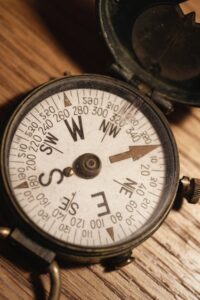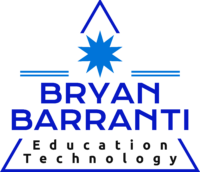
Protocols for General Computer-level Organization:
I have always believed that organization is key when doing any work, especially on the computer. I teach my students about folder structures and using appropriate file names when working with computer documents or other related files. I have been following these protocols within my own studies for my Masters of Educational Technology here. I created a UVic MASTERS main parent folder where I plan to put documents and files that pertain to the entire program. So far I have one document within this folder, Educational Technology: Software/Platform Links, where I have been developing an annotated list of links with descriptions for websites and programs I find useful within the coursework. For example, I have headings for Uvic Applications, Research Applications, AI Applications, Writing Applications, Graphics Applications, Teaching/Learning Applications, and Educational Technology Applications. As I feel this is a very useful working document, I also shared this with the other students within my MEd cohort. I further created folders for each course I am enrolled in, EDCI 515 and EDCI 570/1 where I am organizing all relevant files and documents for each course. I will further create additional folders for subsequent courses.

As far as organizing myself within the literature, I primarily use Zotero: a free, easy-to-use tool to help you collect, organize, annotate, cite, and share research. This software is extremely useful in organizing all of our journal articles, textbooks and pdf files. I have been creating “collections” or folders for each of the courses to store all of the applicable files in an organized manner, as well creating new collections for specific topics like “Northern Communities” for my educational technology issue I am most interested in currently, and “ePortfolios” which was my group presentation topic. In fact, I further created a “Group Library” titled 570_eportfolios and shared it to my fellow group presenters so we had a place to share and collaborate our articles. Within Zotero, not only can I organize my files but the power of this program allows me to further engage in my readings by highlighting key areas of the pdf, make notes within the readings, and then “Add note from annotations” which essentially compiles all of your highlights in a text document. This is an absolutely amazing feature! Furthermore, Zotero is also embedded in Google Docs and Word enabling me to cite references directly from Zotero into these platforms and thus create a running bibliography of sources cited in my writings.

Protocols for Finding Journal Articles:
The last part of my organizational routines for engagement with Educational Technology research relates to finding journal articles. Initially, I begin my searches using Boolean keywords through the UVic Online Library to start finding articles relating to my topic of choice. After finding some relevant articles and reading through them, I then look at their bibliographies and search for some of these references which I find to be specifically related to my topic. Of course, not every reference form any given article will be on point to my topic, typically only sections of an article may fully relate to my topic thus only specific references will thus relate too. I have found that using these protocols has enabled me to start developing my own catalog of references towards my own research topics.
